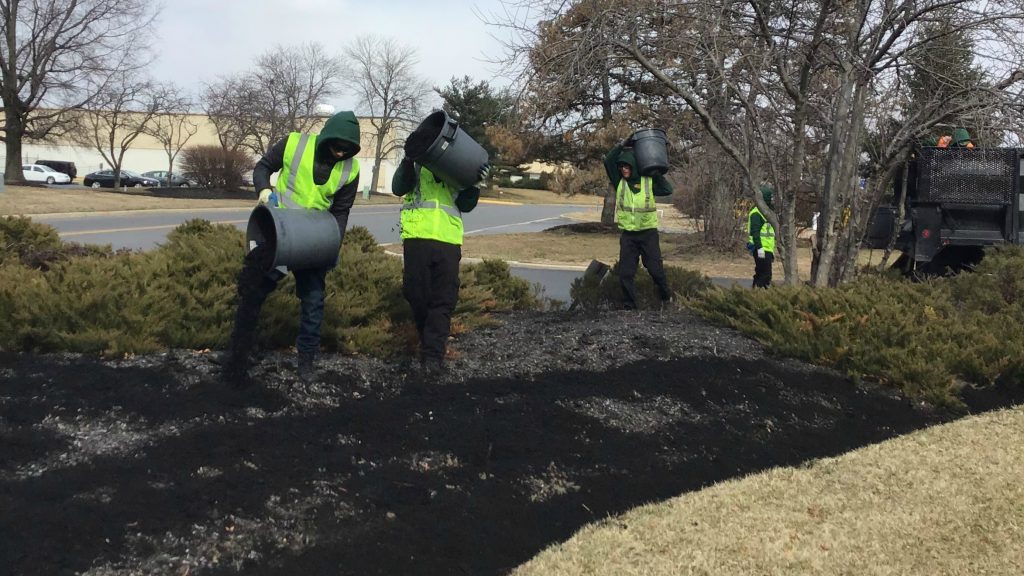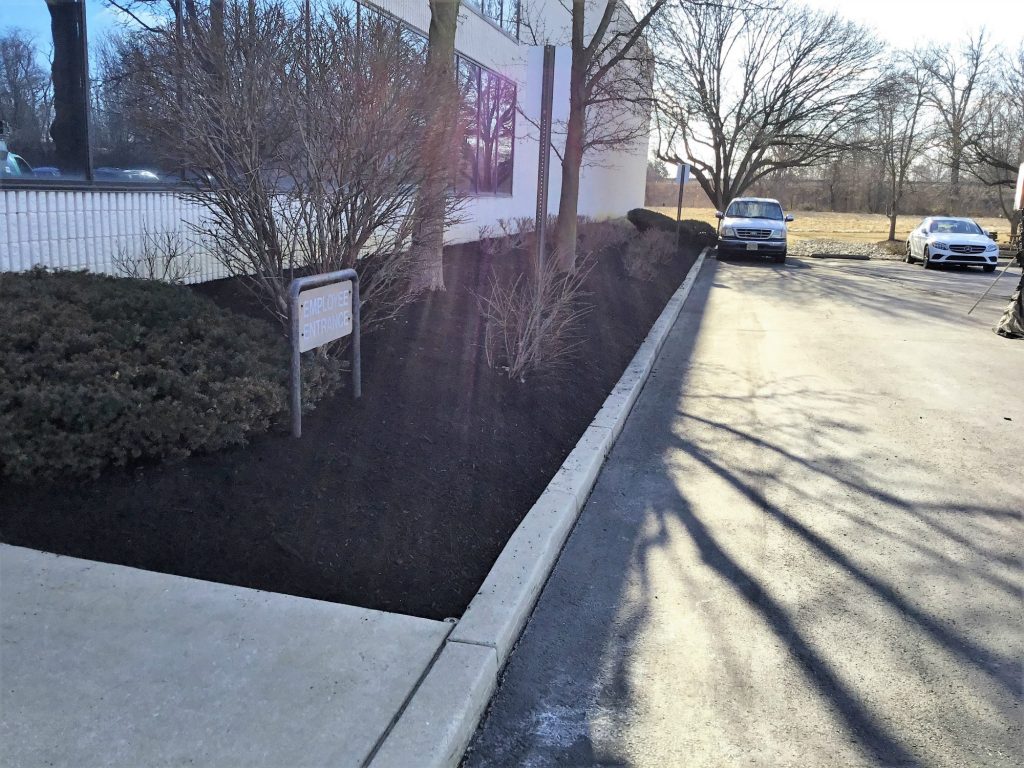The Dangers of Over-Mulching Your Commercial Property
Spring is here, and that means that your commercial landscape is probably ready for some fresh mulching.
Installing mulch around your corporate property can be very advantageous, as it can help your landscape beds retain moisture, deter weed growth and keep your landscape looking well-maintained and sharp.
But some people simply over-do it— piling mounds of mulch around tree trunks, suffocating emerging flowers and more. Let’s learn about the dangers of over-mulching and how you can protect your commercial landscape:

Your Plants Need to Breathe
Just like it would be hard for you to breathe if blankets were layered over your face, too much mulch can suffocate your plants’ roots. These roots need to access oxygen to survive and prosper, and your trees or flowers can experience “oxygen starvation” under a carpet of excessive mulch.
Simply put, this starvation can stop previous perennials from sprouting up, wilt already blooming buds and can cause long-term damage to well-established tree and shrub root systems.
Excess Mulch Retains Too Much Moisture
One of the reasons mulch can become too dense and block oxygen is because the spreads retain large amounts of moisture. This water blocks the diffusion of oxygen, and when soil oxygen levels drop below 10%, root growth slows.

In addition, the wetness becomes the perfect habitat for mildew, inviting insects like mosquitoes and even producing an unpleasant musky smell, often the result of root rot. If you notice leaves dropping off your plants or see excessive dropping, your thick layers of mulch might be collecting up too much water and killing your plants.
Pests Have a Place to Burrow
Trees, in particular, are often damaged by volcano mulching. This is when mulch is piled around a tree, peeking around the trunk to resemble the shape of a volcano. Piling mulch against its trunk can not only suffocate its roots, but this mountainous mass becomes an appealing hideaway for pests like lawn voles and other burrowing critters.

To avoid volcano mulching, never stack piles of mulch around trees or shrubs. Keep the mulch at least 12 inches from the base, beginning with a four-inch layer further out and thinning to it to two inch spreads closer in. Also, be cautious not to throw thick wades over your flowers or plants.
Moist Bark Loses its Hardness & Welcomes Disease
Volcano mulching is also dangerous because soggy mulch keeps tree trunks perpetually wet. This moist bark becomes less tough, which makes it susceptible to pathogens that cause disease, and makes the area a breeding ground for fungi.
The same concept applies to shrubs, which, like trees, can develop shallow root systems and see plant tissue death due to the stress of excessive moisture and resulting fungal diseases, like phytophthora.

Acidity from Mulch Can Throw Off the PH of Your Soil
Last but not least, years of mulch lining or excessive mulching can start to affect the acidity of your soil. This can cause certain important nutrients to be destroyed or others, like iron or zinc, to become intensified to toxic levels.
This micronutrient toxicity can kill many plants, even your turf. Other mulches can cause nitrogen deficiencies, which can cause leaf yellowing— affecting the health and aesthetics of your landscape.
How Much Mulch is Too Much Mulch?
When laying down your mulch, be sure to only apply 1” around your trees and shrubs and between your flower beds. Any more than this and your heavy hand could lead to big problems for your landscape! Plus, it’s just more money out of your wallet spent on mulch that you don’t need.
Reversing Your Over-Mulching Problems
It can take years for your landscape to fully recover from the damage caused by over-mulching.
For those who overloaded their commercial property with too much mulch, you can remove excess spread yourself— or, you can hire some professionals to take care of it for you.
Request your commercial property assessment and we can ensure your landscape is both polished and balanced for healthy plant growth, today.
